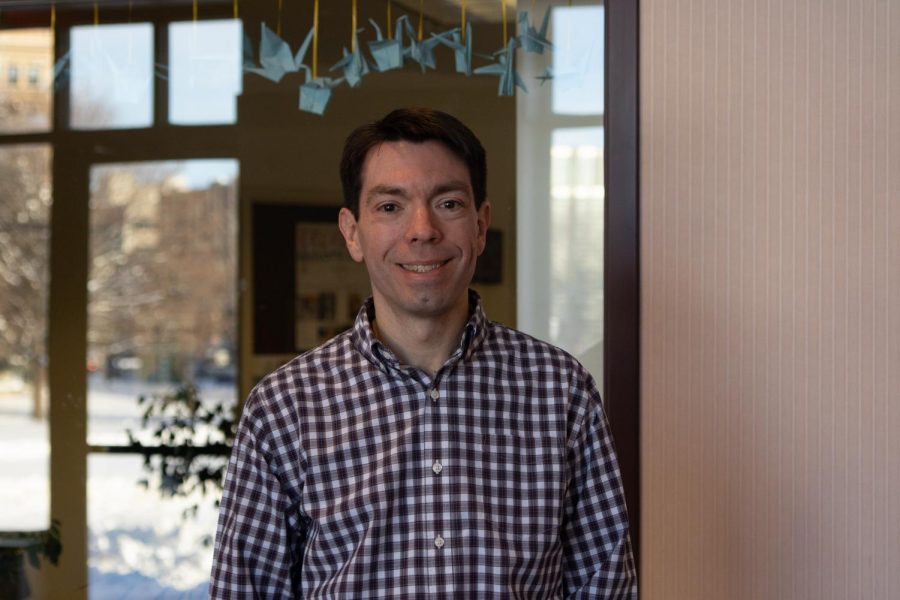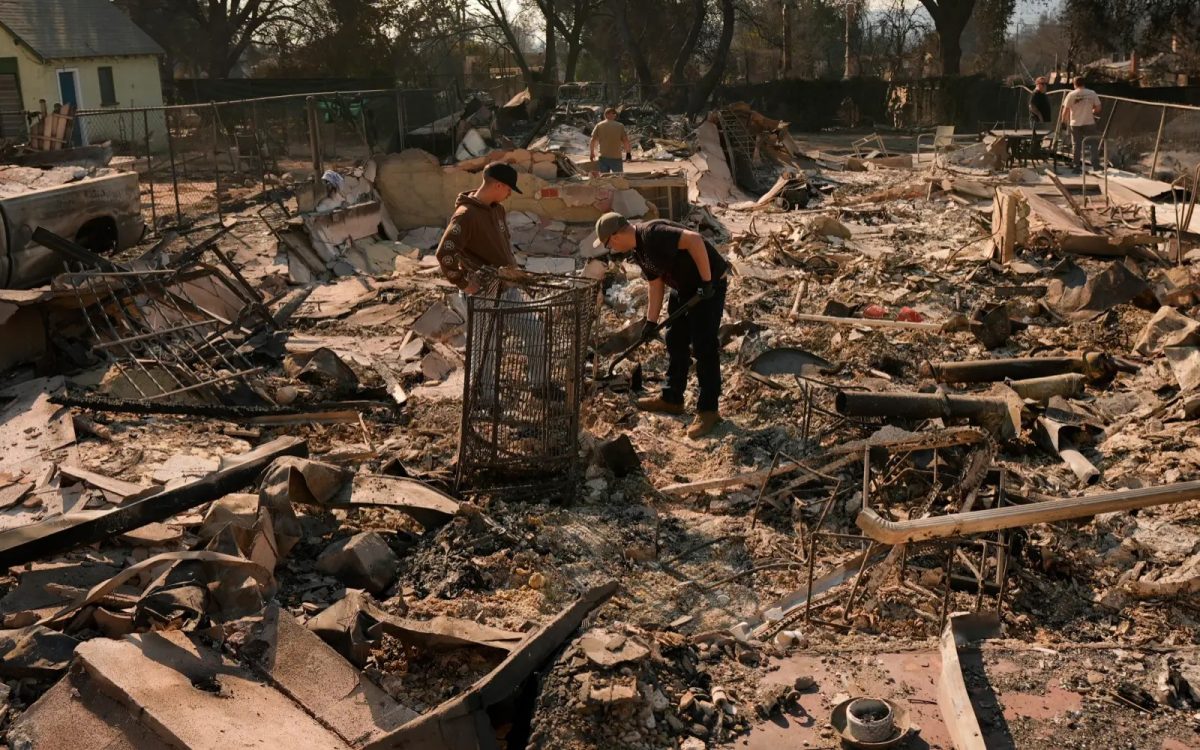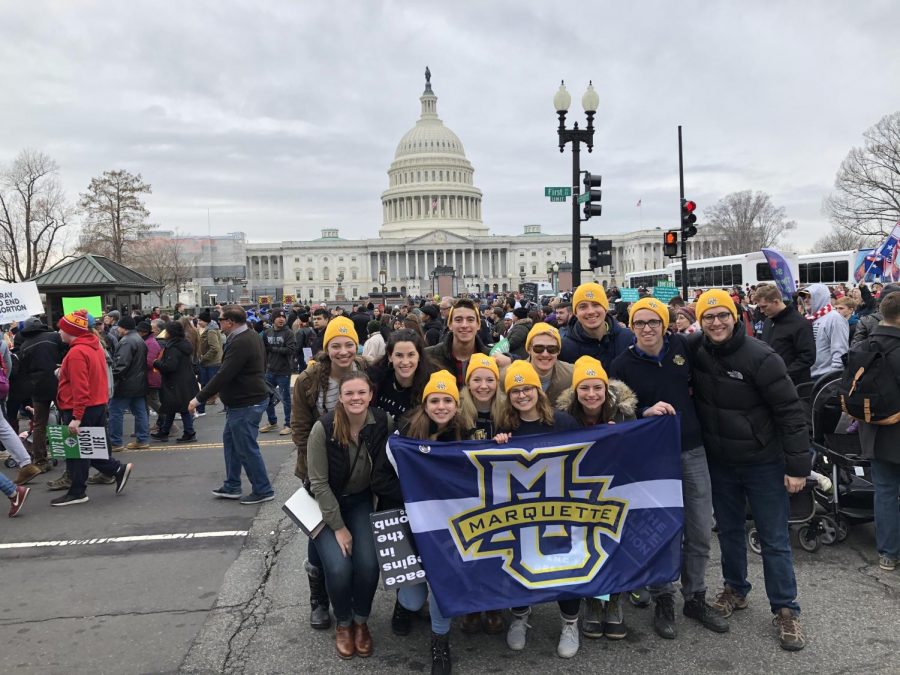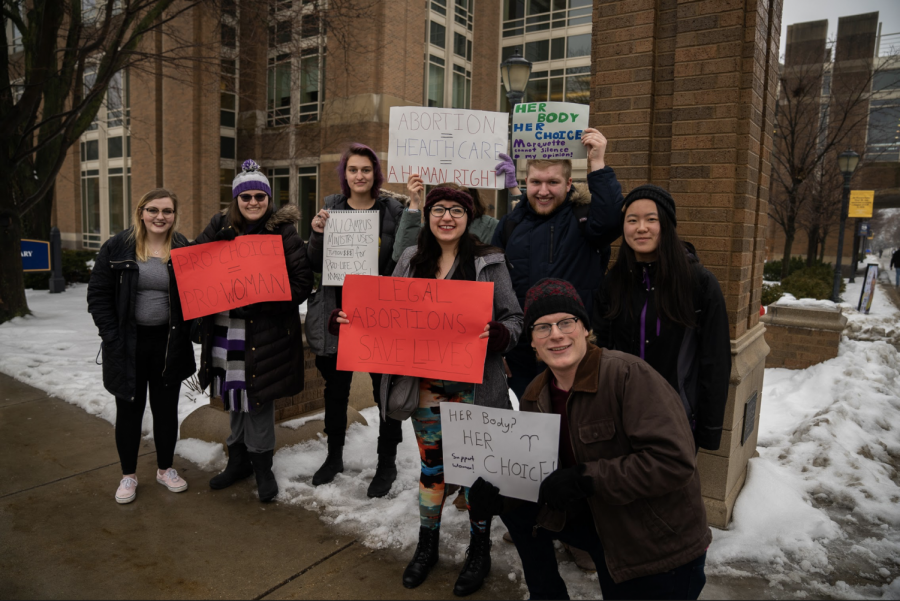
A delegation of 33 students and members of Campus Ministry traveled to Washington, D.C. last weekend to take part in the national March for Life, an annual gathering of pro-life supporters seeking to make their voices known on the national level.
The march marked the 40th anniversary of Roe v. Wade, the Supreme Court case that effectively legalized abortion nationwide. About a half million people participated in the rally.
Marquette students, sponsored by Campus Ministry, left Milwaukee Thursday night and arrived back early Monday morning before classes. They marched on Jan. 25 and Jan. 26, they listened to Students for Life speakers and interacted with other students at the Students for Life Conference.
“It was absolutely a positive experience for every student,” said Brad Schafer, a junior in the College of Engineering and the president of Students for Life. “I did not get a negative vibe from anyone.”
Steve Blaha, the assistant director of Campus Ministry and this year’s chaperone, said Campus Ministry has sponsored trips to Washington for the March for Life since 2010. Prior to that, Students for Life would try to send its own delegation of Marquette students.
Having Campus Ministry sponsor the weekend has increased the number of students involved and added a spiritual dimension to the proceedings. Prior to leaving campus, students participated in an Ignatian reflection period to center themselves around what they hoped to learn and gain. Blaha said Campus Ministry will hold a follow-up session sometime in the near future.
“March for Life is the opportunity of a lifetime,” Schafer said. “You really have to be there to get the whole experience.”
Blaha said abortion is a human rights issue, noting that 50 million abortions have been performed since the Roe v. Wade ruling in 1973.
“(Marquette) has a strong tradition of believing all life is sacred and respecting human dignity as a Catholic university,” Blaha said.
Marquette’s heritage as a Jesuit university does impact the activeness of its pro-life movement. However, according to Blaha, there is a wide variety of opinions on the issue among both faculty and staff.
“(Marquette is) reflective of general society,” Blaha said. “A lot of students are not at a point where they have made a firm decision (about abortion).”
Schafer said there are some things that do not reflect the pro-life approach that should be taken by the Catholic university. He pointed to the “Sex Talks” that have been hosted on campus, which sometimes discuss various types of contraception, as being particularly problematic. Students for Life does a variety of things, such as host speakers, watch movies and hold vigils throughout the year.
Those who support abortion rights, on the other hand, feel that there is not as much negative pressure as might be believed.
“I think that although Marquette’s campus climate is sometimes stereotyped as being very conservative, many students and faculty members strongly support women’s reproductive health, including the right to choose,” said Margaret Grace, a junior in the College of Arts & Sciences and communications director of the College Democrats.
While the emotional and political nature of the issue may sometimes make diologue difficult, Grace said she endorses open-mindedness and civility in discussion.
“As long as both sides respect each other’s opinions and are open to a dialogue about these issues, as well as to change on campus and beyond, there should be no problem,” Grace said.










